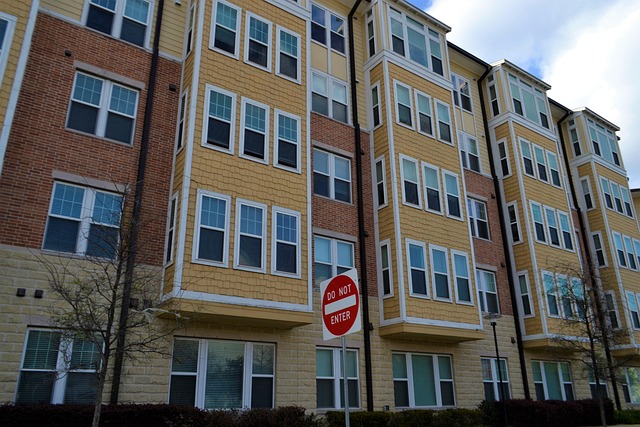How to Relocate to the Netherlands: A Step-by-Step Guide

Moving to a new country can be an exciting yet daunting experience, especially when it involves adapting to a different culture, language, and legal system. The Netherlands, with its picturesque landscapes, vibrant cities, and high quality of life, is one of the most attractive destinations for expatriates. Whether you’re relocating for work, study, or retirement, this step-by-step guide will help you navigate the process smoothly and make your transition as seamless as possible.
1. Understand Why You Want to Move to the Netherlands
Before diving into the logistics, take some time to reflect on why you want to relocate. Are you seeking career opportunities? Studying at a world-class university? Or simply looking for a better quality of life? Understanding your motivations will keep you focused throughout the relocation process.
The Netherlands offers numerous advantages:
- High standard of living
- Excellent healthcare system
- Multilingual population (English is widely spoken)
- Strong economy with abundant job opportunities
- Beautiful natural scenery and cultural landmarks
2. Research Visa Requirements
One of the first steps in moving to the Netherlands is determining which visa you need. Your eligibility depends on factors like your nationality, purpose of stay, and duration of your visit.
Types of Visas:
- MVV (Machtiging Tot Voorlopig Verblijf): Required for non-EU citizens staying longer than three months.
- Work Permit: If you’re moving for employment, your employer may sponsor your work permit.
- Student Visa: For those pursuing education in Dutch universities.
- Residence Permit: Issued after arriving in the Netherlands if you plan to stay long-term.
To apply for a visa:
- Visit the official website of the Dutch Immigration and Naturalisation Service (IND).
- Gather required documents such as passport, proof of funds, health insurance, and employment/study offer.
- Submit your application through the nearest Dutch embassy or consulate.
3. Find Accommodation
Securing a place to live is crucial before or shortly after your arrival. Housing in the Netherlands can be competitive, particularly in major cities like Amsterdam, Rotterdam, and Utrecht. Here’s how to find suitable accommodation:
Options:
- Rental Apartments: Websites like Pararius, Funda, and Marktplaats list available rentals.
- University Housing: If studying, many institutions provide dormitories or student housing.
- Short-Term Stays: Consider Airbnbs or serviced apartments while searching for permanent housing.
- House-Hunting Agencies: These services assist in finding homes but come with fees.
Tips:
- Be prepared for deposit requirements, often equivalent to two months’ rent.
- Read contracts carefully to understand terms and conditions.
- Explore neighborhoods that align with your lifestyle preferences.
4. Register with the Municipality
Once settled, register yourself with the local municipality within five days of arrival. This step is mandatory and grants you a BSN (Burgerservicenummer), a unique citizen service number used for various administrative purposes.
Steps to register:
- Collect necessary documents: Passport, residence permit, lease agreement, and proof of address.
- Visit the town hall or municipal office in your area.
- Provide all required paperwork and receive your BSN.
Having a BSN simplifies opening bank accounts, accessing healthcare, paying taxes, and more.
5. Open a Bank Account
A Dutch bank account is essential for managing finances efficiently. Popular banks include ING, Rabobank, ABN AMRO, and ASN Bank. To open an account, you’ll typically need:
- Valid ID (passport)
- Proof of address (utility bill or rental contract)
- BSN number
Some banks offer specialized packages for expats, making the process easier. Additionally, consider applying for a debit card linked to your account for daily transactions.
6. Obtain Health Insurance
Healthcare in the Netherlands is privatized but highly efficient. By law, everyone must have basic health insurance coverage. Compare providers like Menzis, Zilveren Kruis, and VGZ to choose a plan that suits your needs.
Key points:
- Basic insurance covers standard medical care; additional premiums provide extra benefits.
- International students and temporary workers might qualify for exemptions under certain circumstances.
- Keep receipts for reimbursements from your insurer.
7. Learn the Language and Culture
While English is widely spoken, learning Dutch enhances integration and communication. Enroll in language courses offered by institutions like Talencoach or the University of Groningen. Online platforms like Duolingo and Babbel also serve as valuable resources.
Culturally, the Dutch value punctuality, directness, and equality. Familiarize yourself with these traits to avoid misunderstandings. Participate in community events, join clubs, or volunteer to build connections.
8. Settle Into Daily Life
Adjusting to life in the Netherlands takes time, but here are tips to ease the process:
- Transportation: Invest in a bike—it’s the primary mode of transport—and familiarize yourself with public transit systems.
- Groceries: Shop at popular chains like Albert Heijn, Jumbo, or Lidl for affordable options.
- Socializing: Attend meetups organized by groups like Internations or Expatica to connect with fellow expats.
- Legal Matters: Stay updated on tax obligations and file annual returns via Belastingdienst.
9. Explore the Country
Finally, don’t forget to enjoy everything the Netherlands has to offer! From iconic windmills and tulip fields to bustling markets and historic museums, there’s no shortage of attractions. Plan weekend getaways to explore charming towns like Delft, Leiden, and Haarlem.



